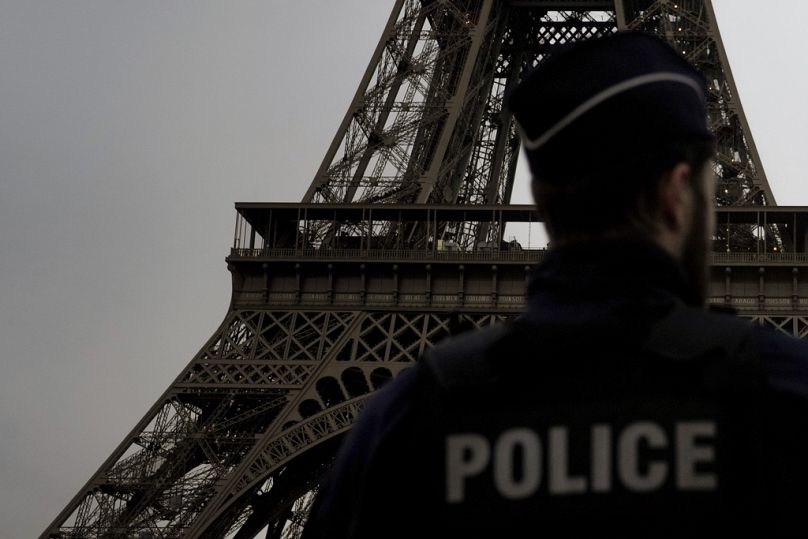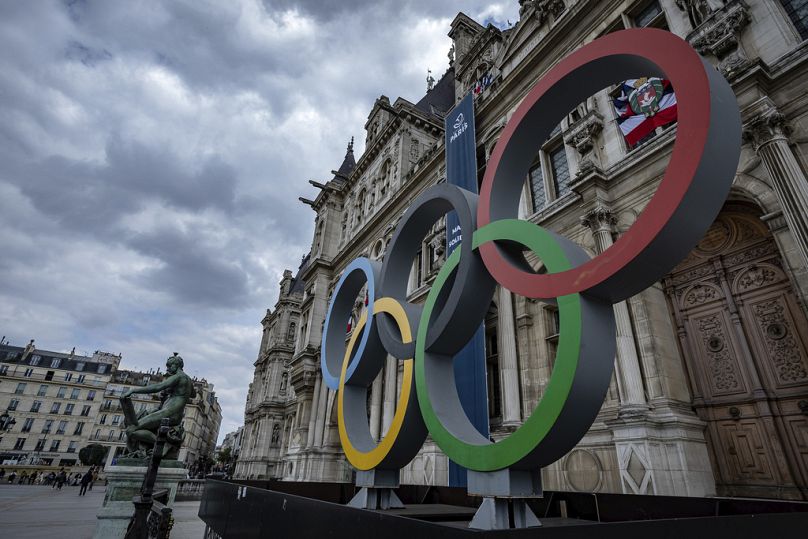The French government has established 10 temporary regional centres to relocate the homeless from the streets of Paris. More than 60 French organisations have condemned it as "social cleansing" and an attempt to boost the city's image ahead of the 2024 Olympics, at the expense of the homeless.
French authorities have introduced a new approach to tackling homelessness in the capital. In place since spring, ten temporary "access to care" centres have been set up across France in cities such as Toulouse, Bordeaux, Angers and Strasbourg. All in a push to relocate homeless individuals from the streets of Paris.
 ADVERTISEMENT
ADVERTISEMENT
 ADVERTISEMENT
ADVERTISEMENT
In early October, the Paris prefecture banned food distribution projects by associations in certain northern neighbourhoods. The decision was overturned a week later by the administrative court after around 30 associations mobilised against it.
More than 60 French organisations have raised objections to the approach by Paris, condemning the relocation strategy as a form of "social cleansing" orchestrated by the government. They are worried about what they claim is an intention to create a polished image of Paris before the 2024 Olympic Games. They voiced their concerns in a letter to the organisers of the Olympic Games. Paul Alauzy is the spokesperson for “Le revers de la médaille” (The other side of the medal), the collective of the associations. He outlined his concerns to Euronews.
"Let's imagine I'm an Afghan asylum seeker escaping the Taliban dictatorship. I make it to Paris, but one day, a bus arrives at my camp and takes me away. Unfortunately, if I don't fit the right administrative criteria, I might end up in a region where there are far fewer support organisations for medical, social, or legal assistance and, ultimately, I will be forced to go back to Paris.”
"These policies were already in place, but the Olympics have accelerated things. There's a push to create what they call a "clean city", and do the work of “harassment and cleaning”, in the words of the Interior Minister. We know this also targets groups of people the government deems undesirable”, explained Paul Alauzy who is also a Coordinator at Doctors of the World.
Squats and other sites in danger
In April, 2023, Paris's largest squat, known as Unibéton, was dismantled. Around 400 people, primarily from Chad and Sudan, were evicted from the site, which had been occupied for three years. The area is set to be part of the Olympic Village for the Paris 2024 Games.
Faris was among the former residents. "We did have some meetings with the prefecture. There were promises made that shelter would be provided and people would be taken care of. None of those promises were kept. Consequently, all those individuals found themselves on the streets."
The Chadian political refugee is the squat's point of contact. "I believe refugees cast a negative shadow on the Olympics. That's why they've decided to expel us. However, there hasn't been any solution offered for the people removed from squats."
Other shelters for the homeless, which lie within the vicinity of designated Olympic Games sites, are also feeling the pressure. As is the case for Halte Humanitaire.
"Individuals living on the streets, especially exiles, are being pushed further away from Paris. We frequently hear reports of people being woken up at night and asked to leave” explained Euronews Benjamin Cagan, Head of Service at Halte Humanitaire, which is managed by the Salvation Army. “One of our concerns is the challenges these individuals will face during the Olympic Games in terms of moving around and accessing certain places of respite".
The Paris Ile de France Prefecture told Euronews it is committed to getting these individuals off the streets and emphasised its aim to secure more dignified accommodation, regardless of what else is happening. "Whether it's the Olympics or not, our approach remains the same - finding dignified places for these individuals while ensuring social and administrative follow-ups."
However, the homeless face a precarious situation, in which they are compelled to attend interviews with the Paris prefecture. These meetings could lead to the expulsion of migrants who currently lack legal status.
But the prefecture says this is the best solution for the homeless. "With the saturation of accommodation in the Paris region, the creation of SAS (Support and Accommodation Structures) in other regions since April [2023] has been a fitting response. 3,192 individuals were relocated to the provinces, including 734 families and 2,458 single men. Voluntarily relocating to the provinces, these individuals received appropriate administrative support and social assistance."
In the heart of Paris, the destiny of those with no fixed abode remains uncertain. "The government revealed that over the past eight months, 2,800 homeless people living on Paris streets were relocated to other regions" Paul Alauzy explained.
"Each evening in front of Paris City Hall, families and minors assemble on the streets, seeking shelter," he continued. "However, during the Olympic Games, it's certain that these gatherings won't be permitted in this area. Adjacent to Paris City Hall, there's a food distribution point where [the organisation] Refugees Food distributed 40,000 meals within six weeks, last summer [2023].
For many people, it often constituted the only meal of the day. The planned 25 'fan zones' for the Olympics raise questions: Where will they be situated? Sadly, we firmly believe that homeless individuals won't be granted access to Paris City Hall square during the Olympics."












